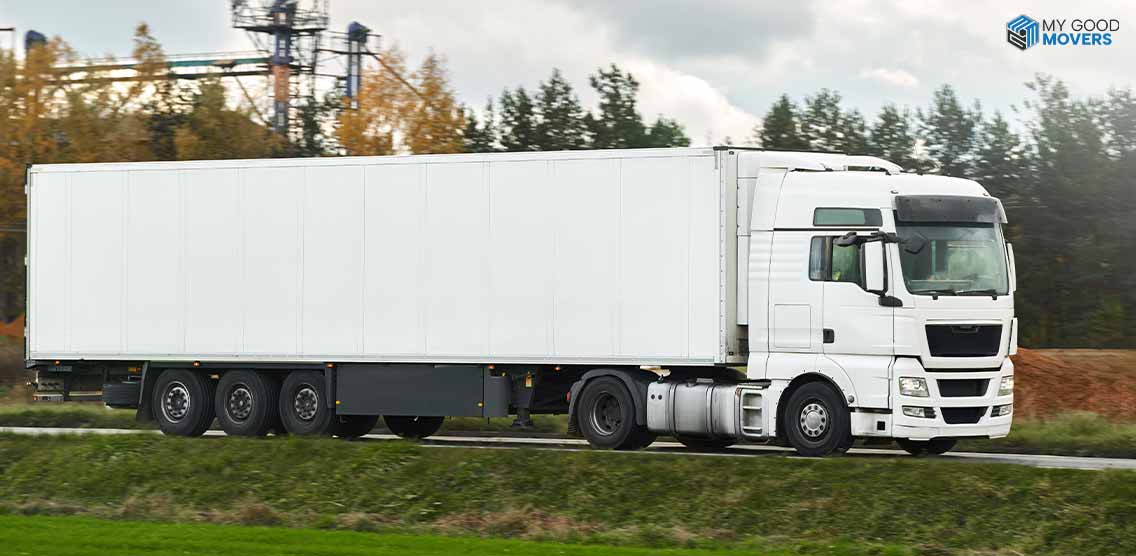Home is where the heart is.
This saying takes on new meaning when you are moving to a place like Pennsylvania.
It is a state known for its historical richness, diverse scenery, and vibrant cities.
Whether you are drawn by the job opportunities in Pittsburgh or the historical charm of Philadelphia, Pennsylvania has something for everyone.
But before you jump headfirst into your new Keystone State life, there's a lot to prepare for.
Did you know that over 7.5 million people move across state lines in the U.S. annually?
Many of them are like you—excited, yet maybe a little stressed about where to start.
Pennsylvania is one of the top destinations in the Northeast due to its affordable cost of living (the median home price is about $250,000, below the national average of $416,100), many job opportunities, and different lifestyles.
Moving to Pennsylvania can feel like a big leap. But don’t worry. Let’s walk you through everything you need to know with this Pennsylvania relocation guide.
Research the Best Places to Live in Pennsylvania
The first thing you need to do is figure out where you want to live in Pennsylvania.
Pennsylvania is incredibly diverse and offers everything from bustling urban centers to peaceful rural areas.
Curious about your moving costs? Fill out the details, and we’ll calculate them for you.

Your choice will depend on your lifestyle, job location, and personal preferences.
Philadelphia: If you love the energy of a big city, Philly’s got it all. It has historical landmarks, cultural diversity, and an iconic food scene.
Pittsburgh: It is known for its tech industry, affordable housing, and outdoor activities. Plus, the sports culture in Pittsburg is intense!
Harrisburg: It is the state capital. It offers a quieter life but is in proximity to major urban areas.
Lancaster: If you prefer a slower pace, Lancaster’s farmlands and Amish communities offer peaceful living.
Tip: Research the cost of living in Pennsylvania in these areas, as prices can vary drastically between cities like Philadelphia and smaller towns like Erie.
Cost of Living in Pennsylvania
The cost of living in Pennsylvania will depend on where you are moving.
In general, Pennsylvania offers a relatively affordable lifestyle compared to other northeastern states.
Philadelphia: You are looking at a higher cost of living here. The average rent for a one-bedroom apartment is around $1,500 a month.
Pittsburgh: It is much more affordable as the average rent is around $1,100.
Lancaster & Harrisburg: It is cheaper than other cities in Pennsylvania. It is great for those looking for more bang for their buck.
| City | Housing (Rent) | Utilities | Groceries | Transportation | Miscellaneous | Total (Monthly) |
|---|---|---|---|---|---|---|
| Philadelphia | $1,500 - $2,300 | $150 - $250 | $350 | $120 | $200 | $2,320 - $3,220 |
| Pittsburgh | $1,100 - $1,700 | $120 - $200 | $300 | $100 | $180 | $1,800 - $2,480 |
| Harrisburg | $900 - $1,300 | $110 - $180 | $280 | $90 | $150 | $1,530 - $2,000 |
| Erie | $700 - $1,000 | $100 - $160 | $260 | $80 | $140 | $1,280 - $1,640 |
Pro Tip: Use online cost-of-living calculators to get a precise estimate based on your chosen city. This will help you plan your budget better.
Get Familiar with the Job Market
Will you be looking for a job once you get to Pennsylvania?
Then, it is integral to familiarize yourself with the job market of Pennsylvania.
Relocating to Pennsylvania for work can be a great move, especially in sectors like healthcare, education, and technology.
Philadelphia: It is home to many Fortune 500 companies, including Comcast and Aramark. Healthcare and finance also dominate here.
Pittsburgh: It is known for its tech and robotics industries. Companies like Google and Uber are setting up the stage here.
Harrisburg: The government is the primary employer here, but the education and healthcare sectors are growing too.
Update Your Address and Documents
Moving means paperwork—lots of it. When you are moving to Pennsylvania, make sure to update your address for all important documents and subscriptions.
You don’t want to miss out on crucial mail!
Here’s a quick checklist for updating your documents:
Driver's License: Pennsylvania law requires new residents to obtain a PA driver’s license within 60 days. You can visit the Pennsylvania Department of Transportation (PennDOT) website to find the nearest location and the documents you need.
Vehicle Registration: If you are bringing your car, you will need to register it in PA. You will also need Pennsylvania car insurance. PennDOT provides detailed steps on how to transfer your registration.
Voter Registration: Remember to register to vote in your new state! You can do this when you update your driver's license or through an online form.
Find a Moving Company
Now, you will need to find a reputable moving company to help you get your stuff to Pennsylvania.
There are tons of moving services in Pennsylvania, but make sure to choose one that’s reliable and within your budget.
Things to consider before hiring a moving company:
Distance: If you are moving cross-country, consider long-distance movers.
Insurance: Always choose full-value protection on your belongings.
Storage: If your new place isn’t ready yet, find a company that offers storage options.
Moving to Pennsylvania tips: Compare quotes from at least three different movers to get the best deal.
Set Up Utilities
Before you start unpacking, you will want to ensure all your utilities are set up.
In Pennsylvania, utility providers have different setups according to your location.
Here’s what you’ll need:
Electricity & Gas: Choose between various providers in deregulated markets like Philadelphia.
Water & Sewer: It is provided by local municipalities.
Internet: Comcast and Verizon are popular internet providers in Pennsylvania.
Tip: Call your utility companies at least two weeks before moving. This will help you to connect everything before you arrive.
Schools and Education
If you are moving with kids, Pennsylvania offers a wide range of education options.
Research the best schools in Pennsylvania based on your location.
Check their school ratings, extracurricular activities, and proximity to your new home before finalizing.
Public Schools: Many towns and cities, especially in Philadelphia, have excellent school districts.
Higher Education: Pennsylvania has several prestigious universities, like the University of Pennsylvania and Penn State.
Check Pennsylvania’s Weather
Pennsylvania’s weather has four distinct seasons around the year.
Winter can be pretty cold, especially in the northern parts of the state, while summers can get quite warm.
If you are moving to cities like Erie or Scranton, always prepare for snow. Make sure your new home is well-insulated and that you have a snow shovel handy!
Local Taxes
Pennsylvania has a flat income tax rate of 3.07%, one of the lowest in the country.
However, local municipalities can add their own taxes, and property taxes in certain areas can be relatively high.
Always factor these taxes into your budget, especially if you are thinking of buying a new home.
Get to Know Your New Neighborhood
Get to know the area you will be calling home.
Pennsylvania offers a lot to explore, whether it’s Philadelphia’s diverse food scene or Pittsburgh’s sports culture.
Take a weekend to wander around and meet your new neighbors. It will help you immerse yourself in local life.
How Much Will It Cost to Move to Pennsylvania?
Let’s talk numbers—because we both know that moving is not only about packing boxes and finding a new neighborhood to explore.
It’s also about understanding how much it's going to cost you.
So, how much will it cost to move to Pennsylvania? Well, that depends on several factors: the distance of your move, the size of your household, whether you're hiring movers, and, of course, the cost of living in your new Pennsylvania city.
On average, a long-distance move (more than 100 miles) within the U.S. costs between $2,000 and $5,000.
Moving Company or DIY?
The first big decision: will you hire professional movers or do it yourself?
Hiring a moving company: If you are moving from out of state, hiring a professional company could cost between $2,000 and $7,000.
But it will depend on how far you are moving, how much stuff you have, and what services you choose.
DIY move: Renting a moving truck and handling the move yourself is a more affordable option. For a long-distance move, it could cost you anywhere from $700 to $2,000.
| Type of Move | Estimated Cost |
|---|---|
| Local move (within 100 miles) | $800 - $2,200 |
| Long-distance move (100-1,000 miles) | $2,000 - $7,000 |
| DIY move (truck rental) | $700 - $2,000 |
| Packing services (if hired) | $300 - $1,500 (depending on size) |
Utility Costs and Setup
When you move to Pennsylvania, setting up your utilities is an essential task—and one that often gets overlooked in the planning stage.
Electricity: The average monthly electricity bill in Pennsylvania is around $120.
Water & Sewer: On average, expect to pay about $40 - $60 monthly for water and sewer services.
Internet & Cable: Internet prices depend on your provider, but high-speed internet usually costs between $50 and $100 per month. If you add cable TV, it will be an additional $50 - $150.
Natural Gas/Heating: If your new home uses natural gas for heating, the cost can range from $50 to $150 per month.
Cost of Registering Your Car
The Pennsylvania Department of Transportation (PennDOT) requires new residents to register their vehicles and update their driver's licenses within 60 days of moving.
Driver's License Transfer: You’ll need to pay around $30.50 to transfer your driver’s license to Pennsylvania.
Vehicle Registration: Registering your car will cost you $38 for a regular passenger vehicle.
Title Transfer: If you own your vehicle outright, transferring the title to Pennsylvania will cost you $58.
Additional Moving Costs
Let's not forget the small but important costs that can easily be overlooked:
Packing Supplies: Boxes, tape, bubble wrap, and markers can add up. You can expect to spend around $50 - $200 on packing supplies.
Tip the Movers: If you are using professional movers, it’s customary to tip around $20 to $50 per mover.
Meals & Lodging: If your move could last multiple days, you’ll need to add the cost of hotels and meals. A budget hotel can cost from $70 to $150 per night, and meals can easily run from $10 to $20 per person per meal.





